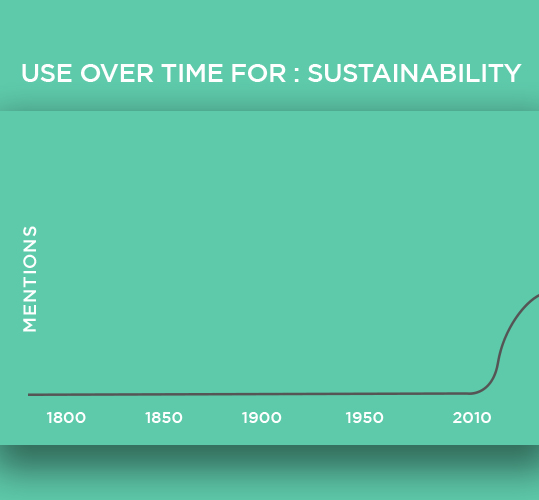Sustainability isn’t only for the birds. The growing trend of sustainability is mostly a response to humanity’s preference for enthusiastically damaging the planet. From business models to packaging products, sustainability can take many different forms — and all of them will have a huge impact on ecommerce businesses in the coming years.
In fact, 81% of global respondents—across gender and age—told Nielsen they agree with the statement: “It is extremely or very important that organizations implement programs to improve the environment.”
Sustainability and environmental awareness have long been trending in ecommerce. For some time now, online retailers have been working on topics like ecology and sustainability, which have a strong influence on the future and are increasingly being demanded by consumers. But how environmentally conscious is your online shop? Moreover, how do you make sure your growing digital business can meet buyers’ expectations?
What is sustainability, exactly?
From business models to product packaging, sustainability can take many forms—and all of them will have a huge impact on ecommerce businesses in the coming years.

At its most basic, sustainability refers to an enduring balance that allows humans (and everything else that lives on this planet) to get what we need from the earth without overusing it and overextending its resources.
As sustainability has grown into a Google Trends buzzword, its meaning has gotten a little hazy.
And that’s okay because it’s nearly impossible to explain what the complex concept of sustainability looks, feels, acts, and smells like in just a few quick sentences. That said, there are a few basic principles.
The five principles of sustainability
Sustainability is a pretty heavy concept, encompassing a multitude of practices across multiple industries with an impact on many aspects of life.
A good framework is Michael Ben-Eli’s five-pronged explanation of sustainability for the Buckminster Fuller Institute. It’s a concrete interpretation that will give you an overview of how sustainability applies across five core domains:
- The material domain constitutes the basis for regulating the flow of materials and energy that underlie existence—in other words, how we use, conserve, regenerate, and manage our resources.
- The economic domain gives a guide for developing and managing wealth such as, how countries, societies, markets, companies, and people develop value.
- The life domain provides the basis for appropriate behavior in the biosphere—how people can live in balance with nature.
- The social domain provides the basis for social interactions—every human’s right to self-actualization and freedom.
- The spiritual domain identifies the necessary attitudinal orientation—in other words, the basis for a universal code of ethics.
Ecommerce is growing at a crazy rate
In China, SustainAbility, an environmental think tank, and consultancy, notes in its Sustainability Annual Trends report that the country’s Ecommerce has experienced rapid growth. However as ecommerce increases, so does its environmental effect.
All those cardboard boxes and plastic packing puffs and Styrofoam peanuts have to be disposed of somewhere… and a lot of the time, that “somewhere” is the Great Pacific Garbage Patch.
Environmental awareness in Germany is continuously growing. This is also confirmed by a study conducted by the Federal Ministry for the Environment in which environmental and climate protection got ranked as the third most important problem.
The trend from recent years shows that many retailers have already given ecological thought to their products and have entered the green business with furniture and home accessories made of wooden pallets, paper, cardboard or cork. In terms of environmental friendliness, some online shops have established themselves with a sustainable business concept. A couple of brands are leading and started setting a great example. One of them is TOMS, a company that has become an internationally recognized brand by making “change-making” easy and affordable and that helps “a person in need” with every purchase of one of their products. This perfectly reflects their motto: “Buy one, give one!”. Additionally, shops like mehr-gruen.de, memolife.de, and 4betterdays.com actively advertise sustainability and sell mainly ecological and fair trade products.
Reasons that speak for a green online shop

Consumers are happy about sustainable, fair and durable products and are also willing to pay more for them. In fact, a study by the ECC Cologne, the sustainability measures of online shops are particularly important for the consumers surveyed. Customers also see a great benefit for themselves in these shops. This includes, for example, offering products that are durable, economical and harmless to health.
Ultimately, sustainability measures have a positive impact on the environment and by actively promoting it as an online retailer, you will increase customer loyalty and ideally even attract new customers. A positive side effect in this context is the generation of higher profits.
Attract millennial crowd
As you may have heard, Millennials are an attractive target group since their purchasing power is continuously increasing. They spend almost $600 billion every year, a number that is expected to grow to $1.4 trillion by 2020. If you want to win this large group of young people like your customers, being eco-friendly plays an important role. Why? A survey found out that 70% of millennials say that a company’s environmental focus influences their purchase decisions.
This is why you as an online shop should consider building your marketing efforts around the social and environmental impact your brand has.
Millennials are the most conscious generation in terms of their social impact and future spending. The fact that eco-friendly products can be more expensive does not reduce the purchase intention of Millenials since they consider it as long-term-investment.
How to communicate sustainable e-commerce
Nine out of ten consumers appreciate the online retailer’s honest communication concerning sustainable offers (91.2%). However, they also presume the trustworthiness of the supplier for not making misleading advertising promises (90.9%). Accordingly, providers should only communicate to the outside world the sustainable aspects of their online shop that they observe and monitor at all times.
Essentially, there are two types of such certificates and seals: management systems and product labels. Management systems regulate the processes of value creation and commit to a continuous improvement process (CIP). Companies or their locations receive certification for this, e.g. the European EMAS system for environmental management.
Product or labels signal the characteristics of a certain product or offer and act as a signal to customers for quality control. These include, for example, the Fairtrade label, the EU organic logo or the Blue Angel.
About the environment, almost every eighth consumer is in favor of saving unnecessary packaging materials and at the same time calls for the reuse of packaging boxes.
If today’s consumers place greater value on sustainable online shops and products, it is advisable to make your own webshop a bit greener as well. After all, such measures not only protect the environment but can also contribute to additional revenue and higher profits.
How often do you hear that ecommerce cannot be sustainable?
But with the following measures, you can prove the opposite.
Organize the shipment of your products ecologically and take over the handling and disposal of products and packaging.
- Assign a suitable parcel service that promises climate-neutral shipping of your goods, such as DHL GoGreen or UPS carbon neutral.
- It’s also recommended to reuse shipping cartons and use paper and cardboard packaging or alternatively wood chips.
- Avoid too much packaging for small content. This not only saves shipping and packaging costs but also benefits your customers
Summarizing sustainable business for your online shop

In summary, it can be said that sustainability and e-commerce do fit together and it is a great moment of opportunity for webshops to follow a sustainable strategy.
The world is evolving and we –retailers and consumers – must evolve with it. Those who are courageous enough to take the step into the era of sustainable business will certainly benefit from it.
The green trend is growing and customers are becoming increasingly demanding. They do not only attach great importance to environmentally friendly shipping but also insist on the sustainable design of fair and durable products.
Becoming a green e-commerce company does not necessarily mean that it will cost you money in the long run. In fact, it’s even great for your marketing and helps you gain a positive image in the market as a responsible retailer.
Now is your chance to use this knowledge and implement a sustainable strategy for your online shop. This can be done by adapting your product range to the growing needs of your customers or adding new product categories which are environmentally sustainable. This is especially worthwhile for shop owners in the home, fashion, or beauty sectors since there is a high willingness to buy ecological and sustainable products.







